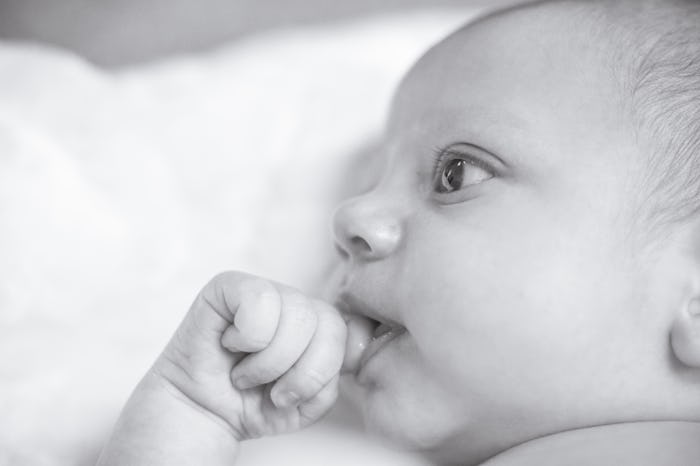Life
8 Signs Your Baby May Have RSV
Knowing what to look for is key.
My niece was born at just 32 weeks, weighing less than 4 lbs. My sister had undiagnosed preeclampsia and went into seizures, which required an emergency C-section. My niece stayed in the NICU for two weeks, and upon discharge, her pediatrician recommended that she receive monthly injections of a medicine called palivizumab. This was to help prevent her from getting respiratory syncytial virus, also known as RSV. Because it is the most common cause of bronchiolitis and pneumonia in babies, it is important to look out for signs of RSV in babies.
The palivizumab shots helped my niece successfully prevent RSV, and she grew up to be a healthy young lady. However, according to the Centers For Disease Control And Prevention (CDC), most kids will get RSV by the time they are 2 years old.
St. Louis Children's Hospital warned that RSV is spread through close contact with infected persons or contact with contaminated surfaces or objects. Infection can occur when the virus comes in contact with the mucous membranes of the eyes, mouth, or nose, and through droplets from a sneeze or cough. The incubation period (time from exposure to symptoms) is about four days.
Here are some RSV signs to watch out for in your baby.
1They Have A Runny Nose
Like most respiratory infections, RSV usually begins with a runny nose according to the CDC.
2Decrease In Appetite
Babies may lose their appetite with RSV. Dayton Children's Hospital noted that their appetite should return as they start to get better.
3They Sneeze
RSV can happen at any time of the year but it's most common from November to April, according to the March of Dimes. Because of this, RSV symptoms can be mistaken for a common cold.
4They Cough
The March of Dimes warned that if your baby has a cough that gets worse or coughs up yellow, green or gray mucus you should contact your doctor right away. Older kids tend to have as croupy cough, described by U.S. National Library of Medicine's Medline Plus as a "seal bark" cough.
5They Have A Fever
RSV is usually accompanied by a fever. A high fever is a temperature greater than 100.4 F in babies younger than two months, 101 F in babies ages three to six months ,or 103 F in babies older than six months, according to the March of Dimes. Call your doctor right away if your baby has a fever.
6They Are Wheezing
Wheezing is also known as "noisy breathing." Don Hayes Jr., M.D., a pediatric pulmonologist at Kentucky Children's Hospital in Lexington told Fit Pregnancy that wheezing is primarily heard on exhaling and it has a musical quality.
7They Are Sluggish
The American Academy of Family Physicians (AAFP) noted that babies with RSV are often sluggish, and this is a sign to contact your doctor.
8They Have A Blue or Gray Skin Tone
Bluish or grayish skin tone is a sign that your baby isn't getting enough oxygen. The American Academy of Pediatrics (AAP) noted that this is a sign that a baby needs respiratory treatment.
This article was originally published on
